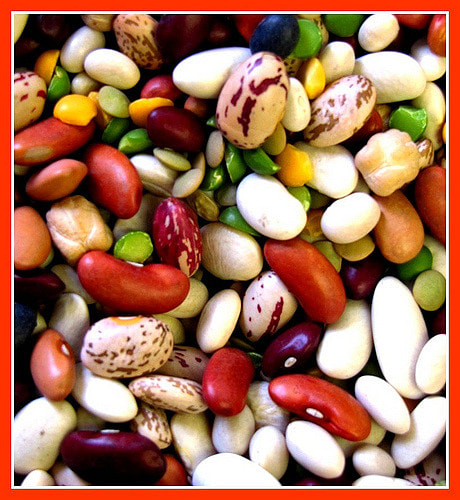(Hint: It’s Not What You Think)The saying throughout life, heard time and again by well-meaning folk, “just be yourself.” Is this easier said than done? I think so. From birth we are being conditioned, in every millisecond of relationship with our caregivers, our siblings, our peers and larger community, to behave in a way that works for the relationship. This is survival for a social being. We need others to survive, not just for food and shelter, but for love. Love is the most essential nutrient that we need. And love has many branches: security, belonging, acceptance, kindness, patience, confidence, support and companionship. We are wired to turn towards these qualities, because our very survival depends on them. But for the most part, in our human reality, love comes with conditions. I daresay, we have all experienced an obstacle when it comes to being ourselves, or belonging to a peer or family group. This is deep stuff and of course we will most often sacrifice ourselves, and our own authenticity in order to belong. That pull to survive, to be part of the tribe, it runs deep and unconscious for most of us. In fact, we need to conform to survive for the first part of our lives, and not conform to survive for the last part of our lives. This suggests that we eventually reach a point in our trajectory, when we awaken to the knowledge that our conformity to the tribe is too small for us anymore, that we must grow beyond it. We feel a desire to explore new territory of ourselves and who we think we are, or could be. We become aware of how challenging the tribe, or confronting the status quo as we’ve known it, becomes the new necessity to our survival. Perhaps it was a significant life event that caused us to look at things with fresh eyes.
Perhaps we encountered a person who, just by their presence, challenged core beliefs we had long held to be true. Perhaps an illness humbled us. Or perhaps it was the arts, a film, a song, or a poem, that knocked on the doorway of our hearts, awakening us to deeper truths about what love is, that in fact it might be grander than we ever realized. This is exciting territory.And as thrilling as it is, it does come with anxiety, and awkwardness, and even shame. Those are the things of the conditional love of the past. The big question then is, will you continue to allow shame and fear to dominate your very being? Or will you, in the midst of that discomfort, choose into a larger you? A you, that can encompass your present challenges, be they relational, political, or physiological, and transcend them with acceptance and transformation. The shame and the fear is not you.I recognize that within us, the voice of shame and fear sounds like your voice, but it is not you. We’ve all grown accustomed to believing these negative things about ourselves. The solution is not to fight those thoughts, or to argue them or debate them until you win. You will never win the argument with your negative thoughts. The solution is about remembering who you really are, and the shame and the fear, is not it. The good news is that I cannot tell you who you really are. That gets to be yours to discover and share with the world as you are ready. But each step you make, to listening beyond the shame and the fear to your real voice, and responding to that voice, the easier it does become to discern the truth. It may seem trite, but diet changes can be a way into this rich territory. Letting go of foods that really do not serve us, and choosing more nourishing options is a concrete way of choosing back into our vibrant self, which often is not the self that is highly managed by fear and shame and doubt. We make changes because we choose life. We choose our life. What works for another likely will not work for you. It can be a place to begin, to start where someone else has gained success, but then continue on from there. Keep going with fine tuning your daily practices (which includes eating!) so that your life feels ever more like your very own. Small changes lead to big changes, so take it one step at a time. And remember, you just have to be yourself. 😉
3 Comments
If you gave yourself the message that you wanted to hear from others, what would that message be?Inner approval, as opposed to getting external approval or permission from others, can be one of the most radically empowering strategies one can make. Instead of wishing for them to understand you, love you, appreciate you, see how good you are, or see your value, why not do this for yourself? This, in a way, is the world of affirmations and positive thinking. What is the message that you long to hear from another? Is there someone in your life, or was there someone in your life, that you wished had said, “I love you,” or “I’m so proud of you,” or “You can be whatever you want to be. I believe in you” ? What if you started saying this to yourself? On a daily basis. Whenever you felt you needed to hear it. As often as you like. Being willing to do this requires that we let go of controlling another person and needing somebody else to show up a certain way in order for us to be okay. We take back our power this way. And the good news is that we can realize, through doing this simple activity, that we really are in charge of how we feel. One of the biggest obstacles that people face when they make changes in their lives is the worry about what others might think or that they might be judged or rejected in some way. And this does and can happen. But if we are no longer tied to another’s approval, because we are consistently giving that to ourselves, then we are more free to move towards our own dreams regardless of what others think. Sometimes making diet changes can feel this overwhelming. Especially if you live with a family that is used to a certain way of eating and your changes will automatically affect them and be seen by others. Privacy is a luxury, and rarely the case with food. Eating is a social experience and when we say “no” to certain foods that are prevalent in our culture and community it can feel like we are saying “no” to the person who made that food, or bought that food, or isn’t ready themselves to think about their own health changes they could make. We don’t have to broadcast our decisions to the world, but we don’t have to ignore our own needs because some parts of the world will be uncomfortable with our decisions. As human beings we are hard-wired to maintain the status quo, and as evolutionary beings, we are hard-wired to change and grow and learn. Sustainable changes are based in compassion and love for ourselves. And when we give ourselves the inner approval we need to make our changes, then it becomes easier to allow others their reactions. Becoming more conscious and awake to our own patterns and choices does disturb the community. This can be why it feels so challenging to make changes, even though we know those changes would benefit us. That disturbance to the system we are in (whether a family, a relationship, a work environment, a peer group, or otherwise) is uncomfortable. It just is. Altering the status quo disrupts things and that disruption is always an invitation for all involved to let go wherever they need to let go. Wherever we are gripping onto a person or a way of life, or what we have decided brings us security, we have the opportunity to let go of this internal gripping when we feel disturbed or discontent. This is a state of mind. We are always getting opportunities to move from a state of mind of control, to a state of mind of allowing. Giving ourselves the messages we long for about who we are and what we are capable of, is the road to allowing. Allowing ourselves to grow and change as we already know we need to, and allowing others to be exactly where they are on their own journey is freedom. Change is exciting and new and it is also about letting go and moving onward. We don’t have to have this all figured out. We only need to listen to ourselves and be our own best friend, give ourselves the encouragement and support we truly want and need. As we do this, we gain momentum and clarity and purpose. These are the cornerstones of empowerment. And the beginning of leadership. So, lead the way. You know where to go, I know you do.
Now, more than ever, we have an understanding about sugar and its effects on our health. For example, check out this Ted talk on how sugar affects the brain. We understand how too much sugar causes addictive patterns in our brain because we receive a dopamine release (a feel good neurotransmitter) after consuming it, and when we consume high amounts of sugar regularly, we start to lose our tolerance for it, causing us to crave more to get the same effect. In this way, sugar, in high amounts, acts like a drug to our system.
This is important to understand because sugar is added to so many foods. In fact, it is hidden in foods you wouldn’t necessarily think would contain sugar. Cakes, cookies, and treats are obviously sugary foods, but did you know sugar is also added to things we might eat on a daily basis, and even think of as healthy? Sugar is found in breads, crackers, salad dressings, condiments like ketchup, pasta, flavored waters and juices, and yogurts. Reading labels and identifying things like cane sugar, raw sugar, honey, fructose, sucrose, dextrose, starch, lactose, corn syrup and high fructose corn syrup, agave nectar, all of which are forms of sugar, can help empower us to make different choices that are healthier. We naturally get sugars from fruits and vegetables. Sugar is another term to describe a simple carbohydrate, or simple sugar. Other carbohydrates, complex carbohydrates, also contain sugar but also have fiber and other nutrients which makes a huge difference in how we process and digest that food. Essentially simple sugars immediately require us to produce insulin in order to shuttle the glucose into our cells for energy. Complex carbohydrates, such as sweet potatoes, squashes and other starchy vegetables, contain fiber and have a longer digestive process, essentially creating a more gradual increase in energy. Think about a sugar spike of energy after eating a sweet treat, followed by a crash, versus a more sustained and gradual energy. Now, here is something interesting about how sugar is stored in the body. Sugar is changed to glucose and brought to our cells to use immediately for energy. Any cell in our body can use glucose for energy. However, our cells have a maximum amount they can use at a time, so any leftover glucose that cannot be used gets converted to glycogen and stored in our muscle tissue and the liver. The liver and our muscle tissue also have a maximum amount of glycogen that can be stored, SO, any excess glycogen beyond that can be used immediately or stored gets converted into triglycerides, which are fat molecules, and stored in adipose tissue, or fatty tissues in the body for longer term storage. In other words, if your diet consists of high and consistent amounts of sugar (including all those hidden sources) then likely you are consuming more than can be used or stored as glycogen and thus that excess fuel gets stored as fat. This is exactly why “diet” and “low-fat” products do not work for weight loss goals. In fact, they often create more stress on the body in terms of processing high amounts of sugars and preservatives and can lead to unwanted weight gain! In addition to weight loss, less sugar consumption is healthier for us because we are not stressing our endocrine system with a high need for insulin. Balancing insulin in the blood has direct effect on the brain where we remain sensitive to sugar and thus do not fall into addictive patterns as mentioned above. Furthermore, high triglyceride count in the blood is strongly linked to heart disease, diabetes, and stroke. Limiting sugars to their natural sources like whole fruits and vegetables and avoiding added sugars and excessive refined sugar consumption can not only help you achieve healthy weight goals but also decrease your risk for serious conditions like metabolic syndrome and heart disease. High Anxiety: How to Stay Strong in the Storm Francie was recently quoted in this article by Deborah Busemeyer that appeared in the Healthy Living Magazine of the Santa Fe New Mexican. Feeling like you have more control in today’s overwhelming world can bring more ease according to Francie Healey, a health and wellness expert and clinical counselor in Santa Fe. In her Conscious Wellness practice, she helps clients develop a deeper awareness of how their lifestyle and nutrition choices make their bodies feel. The next step is regaining a sense of control over those choices. “We want to do it in a way that doesn’t involve diets or deprivations but in a way that empowers someone to stay curious about how they feel,” Healey said. “It’s important to allow the desire to feel good to be the driver, rather than from the place of using willpower. It’s really about tapping into that place that feels worthy of feeling good. It’s a kind approach.”
Conscious Wellness is now offering business coaching! Are you thinking about leaving the corporate rat race and going out on your own?Do you have big dreams but little direction? We can help! Our conscious entrepreneur method is the perfect way to start your entrepreneurial journey. Striking out on your own can be scary, with no clear map of the road ahead. Follow your dreams and bring abundance into your life with our expert guidance.
Do you already own a business? Are you having staffing or personnel issues? Are you having difficulty clarifying your vision or remaining true to your core? Francie will help you clarify your vision, identify your strengths and weaknesses and help you develop a plan to achieve your goals. Contact Francie now to schedule a free 30-minute consultation. Summer is the perfect time to make a transformation. Conscious Wellness has two openings for health consultation and counseling beginning Summer 2016.I use a holistic framework to educate my clients about how and what to eat in order to feel energized, grounded and well nourished. I help them to create habits that support their health and wellness goals. This includes counseling and education around holistic nutrition, meal planning and the connection between food and mood. I help my clients to identify the core values in their lives and to understand how emotional eating can affect the realization of their goals. I help my clients develop strategies around food that support their vision for wellness in a meaningful and sustainable way.
I coach my clients on creating the life they want within the life they have by bringing consciousness to their health. I help them bring awareness to their daily habits and determine whether their habits nourish or deplete. I help them find joy within the fullness of their lives. I will support and coach you in achieving your health and wellness goals using simple techniques you can incorporate into your daily life. I will help you to identify what is most meaningful in your life and help you make your self-care a priority. Sessions are available in person in Santa Fe, NM or by phone or Skype. Contact Francie now to schedule a free 30-minute consultation. I invite you to consider the qualities of spirit as the most important of your dietary guidelines.Peace is not a synonym for agreement. Peace is a quality of stillness and acceptance. When we can stop placing our mind’s conditions of peace onto the world, then we can be at peace. When we can let go of the grip we have on our own agenda and find a deeper trust in our lives that is bigger than anything we could have imagined, then we are entertaining peace. We don’t “fight” for peace. In peace, there is no againstness. Peace does not exist when something else stops existing. Peace is in the stillness that is already here. Are you listening for it? Are you able to let go when things don’t go the way you want? It’s hard, I know. We get so invested in our plans and our hopes for ourselves and for others. We get confused and we think that we are being loving. What if loving was much simpler? What if there was no effort in loving, as loving just…..is? Peace.
Orienting ourselves towards peace and loving helps us navigate from an empowered and uplifted state. Imagine, every morning, taking a moment to refocus on your loving nature. Imagine taking a breath, or two, or ten, that was only devoted to peace, to stillness. How might this small activity shift things for you? How might you choose differently in your morning routine? What would stay the same? It’s simple. Not easy. There are many distractions. And the distractions are not going anywhere, and likely will become more compelling. Bringing down inflammation is very much about choosing healthy foods, and it is also about soothing what is inflamed within us. When we attend to the fight within than we are really making progress for our own wellness. So how do you do that? We have to give up the luxury of thinking the problem lies outside of us. Catch yourself when you blame them, or him, or her, or anything external for being the problem. Instead, turn your gaze inward. The answer to your discontent does not lie outside of you. Peace is not about managing your reality into a fragile harmony. It is about soothing the conflict within. Where is your inner conflict? Where are you judging yourself? Where are you pressuring yourself? Where are you suppressing your feelings? When are you telling yourself you are unsafe, unlovable, no good, a failure? How are you hard on yourself? The willingness to explore this terrain is critical. What is also critical is the willingness to let go of the inner conflict.The idea that letting go of all the ways you control and manage yourself with judgments, criticism and fear will most certainly lead to you being out of control and worse off than you are now is how fear maintains its grip on you. We must challenge this kind of thinking, and start to consider what it might be like to trust in yourself. Trust is essential and many of us early on had reasons not to trust. I get it. Me too. And so the journey back into trust becomes all the more worthwhile. It is possible to stop living in fear. Fear of messing up, saying the wrong thing, getting fat, being rejected or abandoned. Yup, all that is there. For most of us. And it does not have to rule you. It does not have to be your boss. Consider that everything so far in your life has brought you right to this very moment. Right to the place where you are starting to consider that you are worth more than you thought you were. Consider that every hardship has been in service to your own awakening into a deeper understanding of yourself. You can trust yourself and you can trust your life. Everything in your life, on the micro and macro levels, is working for you.Every disturbance, irritant, discontent, is grist for the mill. It is a stepping stone for you to reach deeper into yourself than ever before, past all the pressuring and judging and attachments. The world is for your own liberation. Liberation is the opposite of control. Beyond liberation lies peace. Use your lifetime to find your own liberation. I believe this is what deeply serves the world. More so than our anger and our cynicism ever could. It is exciting to me to think of where your liberation might lead you. What might you create? How might you treat yourself and others? Ultimately we each have the opportunity to genuinely love our lives and love ourselves. So cultivate peace from the inside out. Do whatever it takes and then observe the changes in yourself and the world. Then tell us all about it. There is a lot of talk about brain health happening these days.
The excitement is that we are really beginning to see connections in the way we live and what we eat and how that affects our brains. And brains are not just for thinking and problem solving – they control our moods (depression, anxiety, irritability, low patience), our energy levels, whether we can manage the stressors well in our lives, our tolerance for stimulation (noise, smells, touch, movement), our physical coordination and balance, and many many other things that absolutely affect the quality of our day to day lives. So, if you knew that certain foods create inflammation in the brain and increased our likelihood to be depressed or anxious or fatigued, would you give them up? And if you knew there were certain foods that protected your brain from inflammation and toxicity which in turn would improve your mood, would you eat them? I know I would! Simple changes in our diet can go a long way towards feeling great. Omega-3 fats are essential for good brain health and incorporating more of them into your diet can help to improve your mood. Omega-3 fat consumption is also associated with prevention of cognitive decline. The standard american diet is chronically deficient in Omega-3 fats and way too high in Omega-6 fats (interestingly we are seeing rates of neurodegenerative diseases like Alzheimer’s on the rise which may have a lot to do with how inflammatory the standard american diet is). High amounts of Omega-6 fat tips the balance towards high levels of toxicity (free radicals) in the brain which results in inflammation in the brain, which affects our mood and many other things. Increasing our intake of Omega-3 fats is the best way to address this imbalance. It is also important to know that balancing our source of Omega-3 fats from both plant and animal sources is beneficial especially as we get older because the enzymes used to convert the vegetarian sources of Omega-3s into the essential fatty acids DHA and EPA decline as we age. Here are some of the best sources of Omega-3 fats:
Here are some ways to incorporate more healthy Omega-3 fats and improve your mood with food:
Recipe idea: Blend 2 ripe bananas, ½ can coconut milk or 1 cup of milk of your choice, 1 cup plain kefir or plain yogurt, 2 TB almond butter, 1 TB chia seeds, 1 cup fresh or frozen berries (blueberries or raspberries recommended), and 2 cups ice. For added flavor add few drops of vanilla extract or honey to sweeten.
Recipe idea: Try making your own Caesar salad dressing! (Minced garlic, fresh squeezed lemon, 2-3 chopped anchovies, 1 raw pastured egg yolk, extra virgin olive oil, 1 tsp dried mustard, ½ cup organic shredded Romano cheese (omit for dairy free). Whisk together in large salad bowl until desired taste and consistency, then toss in chopped romaine lettuce. Top with another ½ cup shredded Romano if desired.) Delicious with fresh grilled salmon!
Recipe idea: Try this yummy quick recipe for healthy currants and healthy fat: Mix together ½ cup coconut oil, ¼ cup coconut flour, ½ cup dried currants (or dried blueberries!), 2 TB collagen protein powder, 1 tsp cinnamon, 1 TB maple syrup. Pour into small muffin tin for mini “muffins” and freeze for 15 minutes. Eating for wellness is really delicious! When we start incorporating these essential nutrients into our diets and naturally let go of convenience foods that have been highly processed and refined, we bring in more nourishment and pleasure with eating. Enjoy trying these suggestions and adapting them and making them your own! As always, I’d love to hear your discoveries in the comments whether it is yummy recipes or changes you’ve made with your brain health through diet. For more nutritional science on brain health and recipes check out my book, "Eat to Beat Alzheimer’s: Delicious Recipes and New Research to Prevent and Slow Dementia." The book is jam-packed with easy to read science and suggestions, as well as great everyday recipes that are for anyone wanting to improve their brain health and bring down chronic inflammation. Here’s to happy and healthy eating for happy and healthy brains! You may have heard the term “adrenal fatigue” or “adrenal burnout.”These terms are meant to describe a physiological situation in which the systems designed to help us respond and deal with stress become compromised. The adrenal glands, which sit atop our kidneys, secrete a hormone called cortisol when we are experiencing any form of stress. Cortisol helps shift things physiologically (such as suppressing digestion, fertility and blood circulation and turning on fight, flight and flee mechanisms) to that we can “survive” the stress at hand. This is an incredible system for us surviving acute stressful situations. However, chronic stress over time is not conducive to long-term health. When cortisol is chronically high, or even chronically low (which can happen after too much output over too long of a time) we suffer for it.
Possible symptoms of adrenal fatigue, or what is more accurately termed hypothalamic pituitary axis (HPA) dysfunction, can mimic other symptoms of chronic illness. HPA dysfunction, turns out is not simply about fatigued adrenals, but about a delicate interplay of hormones and feedback systems within the brain that becomes maladaptive. It is highly recommended to work with a skilled practitioner and get accurate testing done in order to identify any issues with your HPA axis. However, it can be reasonably assumed that if you suffer from any kind of chronic illness, addressing the health and functioning of your HPA axis is a critical must for regaining your health. In addition to testing, if you suffer from any of the following, it may indicate as well an HPA dysfunction:
You may find this resource on HPA dysfunction helpful for exploring the above in more depth.) There are multiple causes for HPA dysfunction and some of those we have control over and others we do not. One huge factor is disrupted circadian rhythms, and disrupted sleep. Therefore, a powerful step one can take to address HPA dysfunction and begin reducing symptoms is to start prioritizing sleep by getting enough sleep and getting good quality sleep. Lets look at some ways you can start to make small changes that will have big impacts on your quality of sleep, which in turn will support your overall health.
(Read more about healthy sleep and why it is important here.) Not only can adequate sleep help resolve any dysfunction in your HPA (your stress response) but it can also be restorative in areas you wouldn’t think about. When our bodies perceive chronic stress and have a lowered resilience to stress (due to HPA dysfunction) it will shut down, or limit its resources in areas of the body not necessary for immediate survival. This includes the digestive system, reproductive system, and detox systems. Circulation of life giving blood gets limited and rationed. Getting enough quality sleep, regularly, can not only provide you with more energy and brain function during the day but can also improve your ability to absorb essential vitamins and nutrients (which in turn help you look and feel your best), can increase your libido and nourish your intimate relationships (good sex is good for you!), and also supports you getting out toxins which we are exposed to every single day (additives in foods, chemicals in our buildings, furniture, water and air). All in all, supporting our critical need for sleep lays a powerfully strong foundation for health and wellness that will positively inform the quality of your life. What if every day of your life was a treasure hunt? What would you be searching for? Money? Connections? Pleasure? Relief? Love? Beauty? Those are just a few ideas, but we are all wired to think of “treasure” as something worth getting and that something is different for everyone. But it is a set up isn’t it? Because if we have defined success, or getting the treasure, as something, like feeling happy for example, then what happens when we have a day that is full of grief? I mean, life happens right? So does that day of grief get labeled as a “bad” day in our minds? Often, it does. And we are socially conditioned to do this, to label our day as a “good” day or a “bad” day. And let’s be honest, but isn’t a “good” day just a day that happens to go our way?
How about just experiencing whatever day we are having and letting go of the label of good or bad? What if, every single day, no matter what is happening, is a treasure hunt, and that treasure is simply, peace. In other words, how can we find the peace in every day? Being at peace with what is happening does not mean we are passive about things that upset us or need changing. It does mean being at peace with our own response to that particular day. If there is something upsetting in the news for you that day, then there is a choice. You can think its “bad” and therefore you will have a “bad” day, or you can accept what you are feeling (not so much thinking) and use it to get to know yourself more deeply, and build compassion for yourself. What are you feeling when you are upset by the news? Sadness? Disappointment? Anger? And then under the anger, is it fear? Powerlessness? Empathy builds when we acknowledge the feeling that is present without judging it as bad or wrong or trying to fix or solve it. First we allow the feeling to be present and recognize that it’s likely pretty normal to have such a response. Next we can ask ourselves the question, “what do I need today?” Here are some ideas to help you find your way.
It could be the guidance you received from your self investigation, leading you in a new and enlivening direction. Or it could be the simple awareness that something does need to change, even if you don’t know what that is just yet. The good news is you are listening now, and not leaving yourself behind in your efforts to attain some idea of success (more money, cleaner fancier house) or someone else’s expectations of you. You are living your life and letting that deepen into something more enriching than before because every part of you matters and exists for a reason. Even the tired and irritable part. We need only be willing to listen and hear the underlying message. Life becomes more complex and stressful when we don’t allow ourselves expression to be the full spectrum of who we are as human beings. We simply cannot afford the luxury of suppression any longer. This doesn’t mean we can explode with abandon. In fact, emotional explosions tend to be the result of long term suppression. It does mean we take stock on a daily basis, and work to surrender our agenda for our lives, or the day, and open up to the bigger picture of who we are and what life might have planned for us. It’s not easy. But it can be magical to set aside all the ways we attempt to control ourselves and our day to day. What happens then? Well, go ahead and see. And share with me about it, if you want, in the comments. |
Archives
July 2018
Categories
All
|
















 RSS Feed
RSS Feed